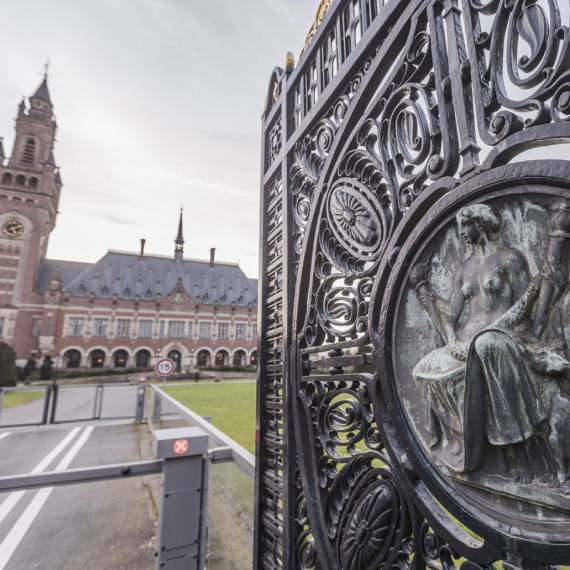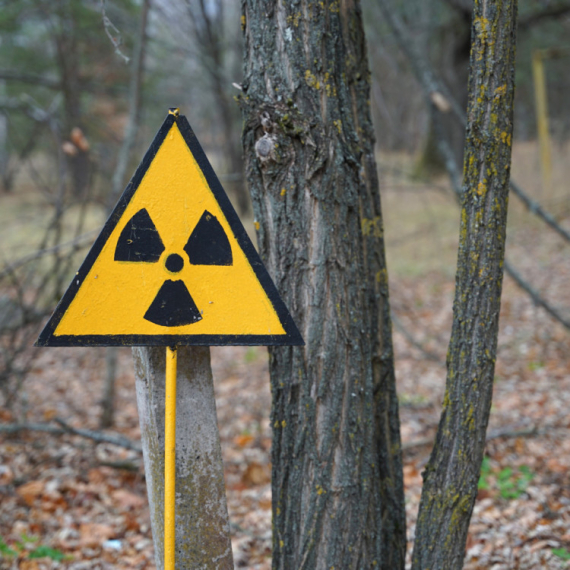"BIA not to blame for missing fingerprints"
The BIA director denies claims that a document containing Ratko Mladić’s fingerprint went missing from his agency.
Friday, 12.09.2008.
09:18

The BIA director denies claims that a document containing Ratko Mladic’s fingerprint went missing from his agency. In a statement, the Security and Intelligence Agency (BIA) says that “it is not true that a document containing Ratko Mladic’s fingerprint has disappeared from BIA.” "BIA not to blame for missing fingerprints" Sasa Vukadinovic points out that BIA does not issue personal documents such as passports or personal ID cards, and therefore, the file in question could not have disappeared from his agency. Vukadinovic said that all the documentation that BIA possessed was absolutely secure. Meanwhile, President of the National Council for the Hague Cooperation Rasim Ljajic has said that all the services involved in the hunt for the remaining Hague fugitives are cooperating superbly. Ljajic said that the Action team for the location, arrest and transfer of Hague fugitives, which includes the BIA director, was working “as one”. "We have excellent cooperation and coordination between the security services in the search for the Hague fugitives,” Ljajic told Tanjug, following speculation that the Military Security Agency had been left out of the search for Ratko Mladic and Goran Hadzic. Ljajic also said that the BIA had nothing to do with the missing file containing Mladic’s fingerprints. He said that the information that a document had disappeared was correct, though he added that it was not known whether such a file ever even existed. "That remains to be established, and that initiative has been launched by the Action Team, with a view to running further operational checks. We have, therefore, come to that conclusion without any external pressure,” Ljajic stressed. The National Council president reiterated that the Action Team had in its possession Mladic’s ID card issued on November 3, 1999 at the police station in Lermontova Street in Belgrade, which houses the customs police, and the police for foreign citizens and administrative affairs. He added that all former Yugoslav citizens had been able to obtain identification documents in that station at the time. Ljajic said that it was now being determined whether any documentation was submitted when Mladic was issued with his ID card, and if so, how it disappeared. "If it is determined that the documentation containing Mladic’s fingerprints actually did exist, then it means that it has disappeared. However it is possible that such documentation never existed, but that Mladic got his ID, for instance, simply by asking for it over the phone,” he explained. "Mladic doesn't intend to surrender" According to info from the secret services, Ratko Mladic has no intention of surrendering, says the war crimes prosecutor. Vladimir Vukcevic told daily Blic that among Mladic’s immediate support network were a large number of people prepared to use weapons at any moment, which was why arresting him would be much more complex than in the case of Radovan Karadzic. Vukcevic said that Mladic had not changed his identity and that he had not made any great changes to his outward appearance, and that he was hiding in a completely different manner to Karadzic. The prosecutor said that the security services had come upon new information on the Hague fugitive’s helpers.
"BIA not to blame for missing fingerprints"
Saša Vukadinović points out that BIA does not issue personal documents such as passports or personal ID cards, and therefore, the file in question could not have disappeared from his agency.Vukadinović said that all the documentation that BIA possessed was absolutely secure.
Meanwhile, President of the National Council for the Hague Cooperation Rasim Ljajić has said that all the services involved in the hunt for the remaining Hague fugitives are cooperating superbly.
Ljajić said that the Action team for the location, arrest and transfer of Hague fugitives, which includes the BIA director, was working “as one”.
"We have excellent cooperation and coordination between the security services in the search for the Hague fugitives,” Ljajić told Tanjug, following speculation that the Military Security Agency had been left out of the search for Ratko Mladić and Goran Hadžić.
Ljajić also said that the BIA had nothing to do with the missing file containing Mladić’s fingerprints.
He said that the information that a document had disappeared was correct, though he added that it was not known whether such a file ever even existed.
"That remains to be established, and that initiative has been launched by the Action Team, with a view to running further operational checks. We have, therefore, come to that conclusion without any external pressure,” Ljajić stressed.
The National Council president reiterated that the Action Team had in its possession Mladić’s ID card issued on November 3, 1999 at the police station in Lermontova Street in Belgrade, which houses the customs police, and the police for foreign citizens and administrative affairs.
He added that all former Yugoslav citizens had been able to obtain identification documents in that station at the time.
Ljajić said that it was now being determined whether any documentation was submitted when Mladić was issued with his ID card, and if so, how it disappeared.
"If it is determined that the documentation containing Mladić’s fingerprints actually did exist, then it means that it has disappeared. However it is possible that such documentation never existed, but that Mladić got his ID, for instance, simply by asking for it over the phone,” he explained.
"Mladić doesn't intend to surrender"
According to info from the secret services, Ratko Mladić has no intention of surrendering, says the war crimes prosecutor.Vladimir Vukčević told daily Blic that among Mladić’s immediate support network were a large number of people prepared to use weapons at any moment, which was why arresting him would be much more complex than in the case of Radovan Karadžić.
Vukčević said that Mladić had not changed his identity and that he had not made any great changes to his outward appearance, and that he was hiding in a completely different manner to Karadžić.
The prosecutor said that the security services had come upon new information on the Hague fugitive’s helpers.





















































Komentari 7
Pogledaj komentare